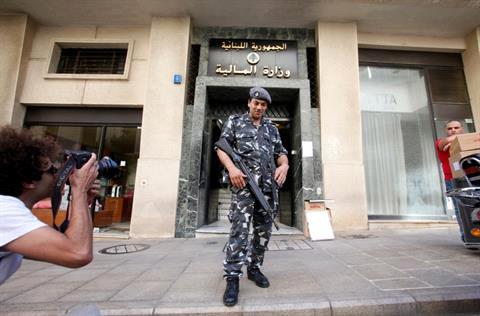Ammon News - BEIRUT (The Daily Star) - Lebanon’s budget deficit has jumped by more than 38 percent, or LL650 billion, in the first four months of the year to reach LL2.275 trillion, the Finance Ministry said Friday. The Treasury registered a LL406 billion primary deficit in the first four months of the year compared to a LL289 billion surplus during the same period last year. The primary balance is a vital indicator calculated by deducting the interest payments component from the total deficit of any budget.
The primary deficit means that even if Lebanon had no interest payments it would not be able to pay for expenditures without borrowing.
Total revenues declined 0.76 percent to LL4.728 trillion. Tax revenues shed 1.3 percent and nontax revenues declined 6.6 percent.
“Other” Treasury revenues increased 38.3 percent but the components were not detailed in the ministry’s statement.
Key declines in taxes include a 4.4 percent in the value-added tax revenues and a more than 13 percent decline in real estate registration fees, according to the Finance Ministry. Telecom revenues decreased by more than 12.7 percent in the same period.
The Lebanese economy has been facing bleak prospects and some senior economists have warned that if security breaches and political deadlock persist, the economy could register a contraction by the end of the year. If such a scenario materializes, it would be the first time since 1989, when it registered a 0.8 percent contraction according to the IMF.
Total expenditures soared 9.26 percent to more than LL7 trillion. Foreign debt interest payments declined 9.65 percent as external debt repayments fell 15.5 percent.
Nondebt expenditures increased LL659 billion.
Lebanon’s public debt has swelled by nearly $5 billion during the term of caretaker Prime Minister Najib Mikati’s Cabinet, the secretary-general of the Association of Banks in Lebanon told The Daily Star last month.
Lebanon’s total debt as of April stood at $59.1 billion, 60 percent of which was borrowed in foreign currencies, Makram Sader told The Daily Star.
Caretaker Finance Minister Mohammad Safadi has recently denied media reports that he had sounded the alarm over a lack of liquidity at the Treasury.
But several newspapers have carried reports in which ministers warned that $500 million in external financing was urgently needed for the state to proceed with vital expenditures, including public sector salaries.
